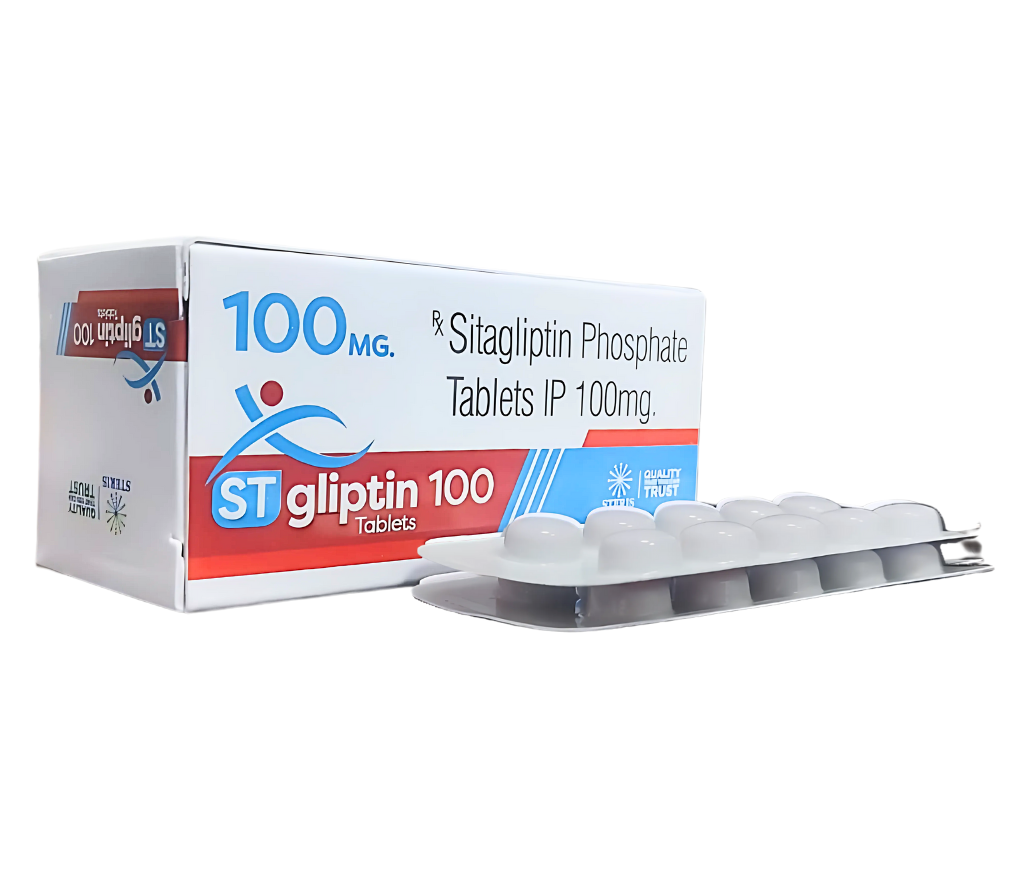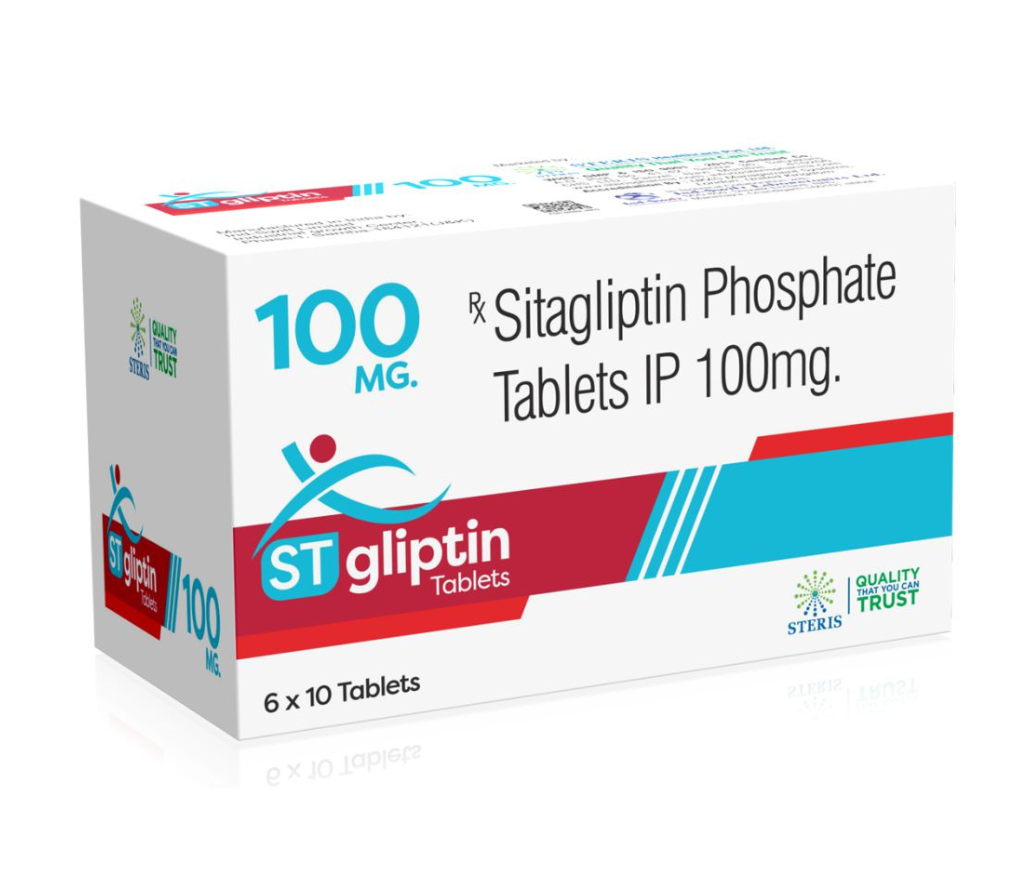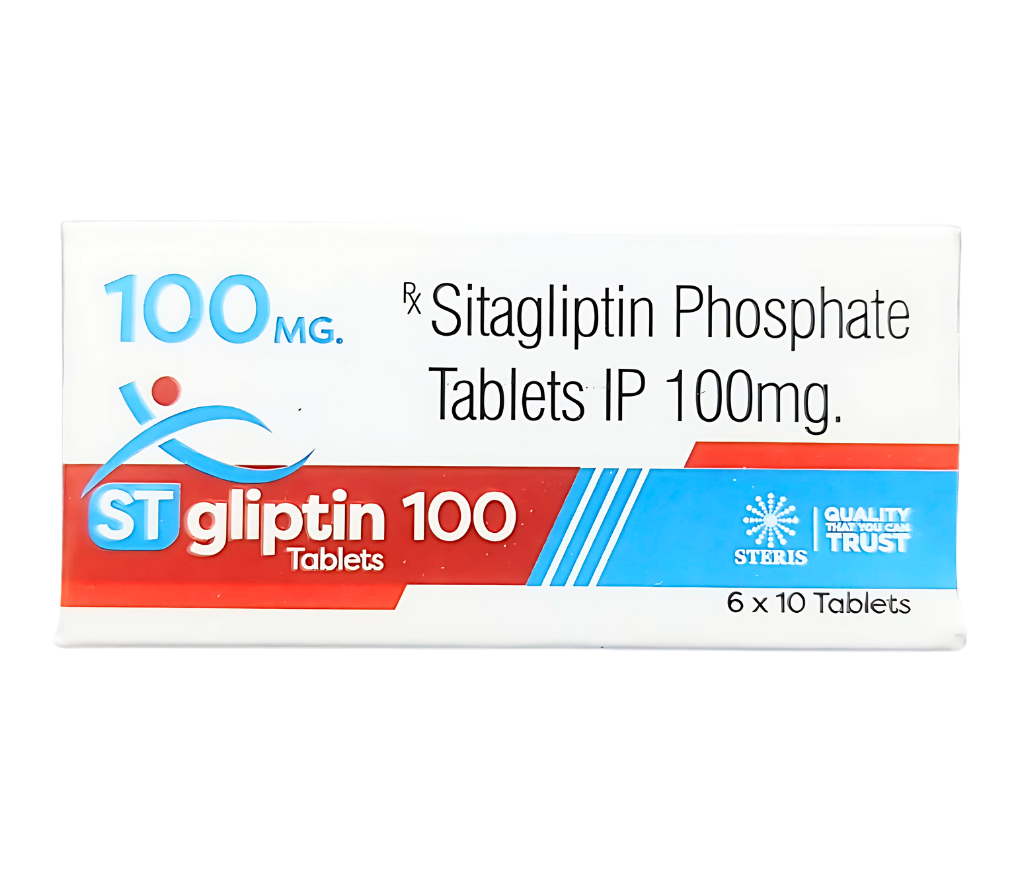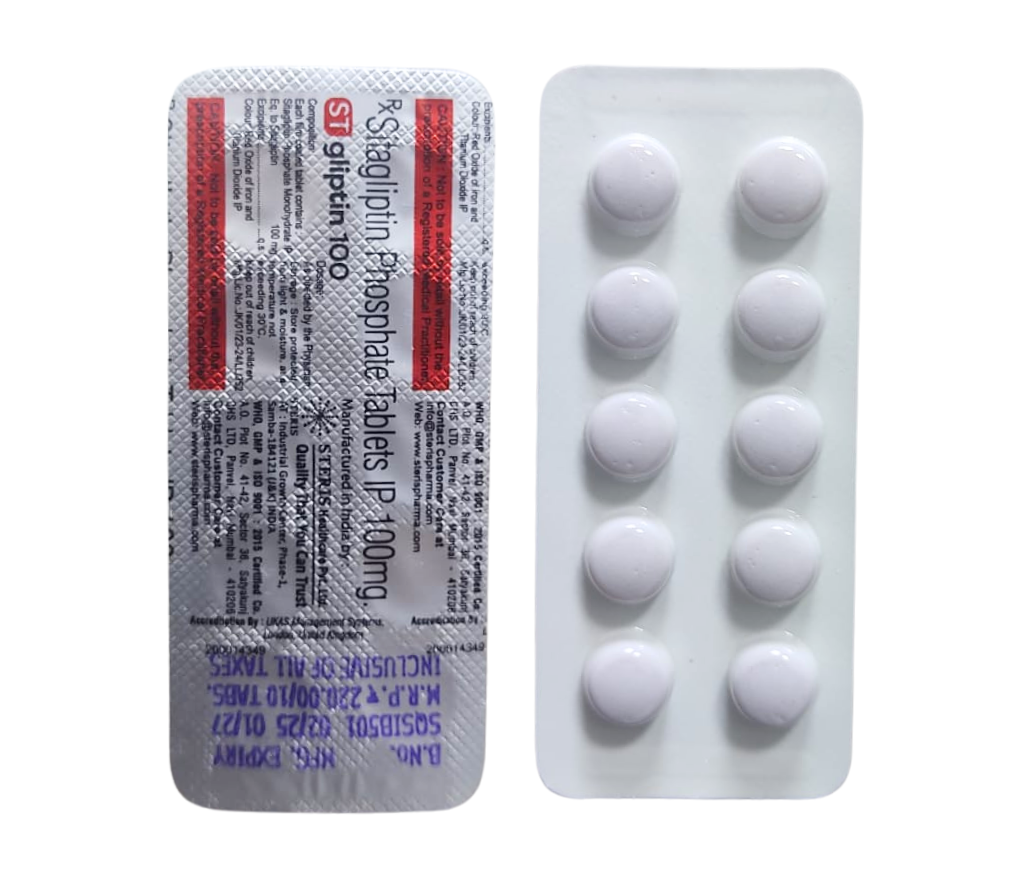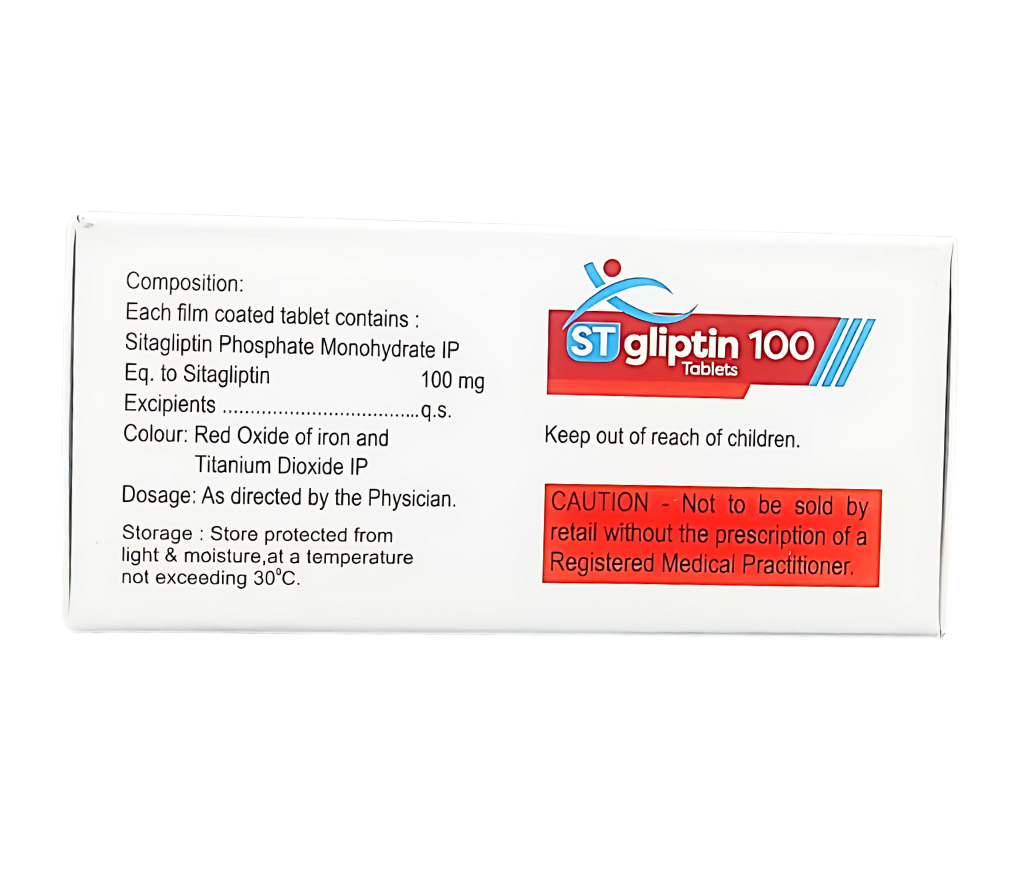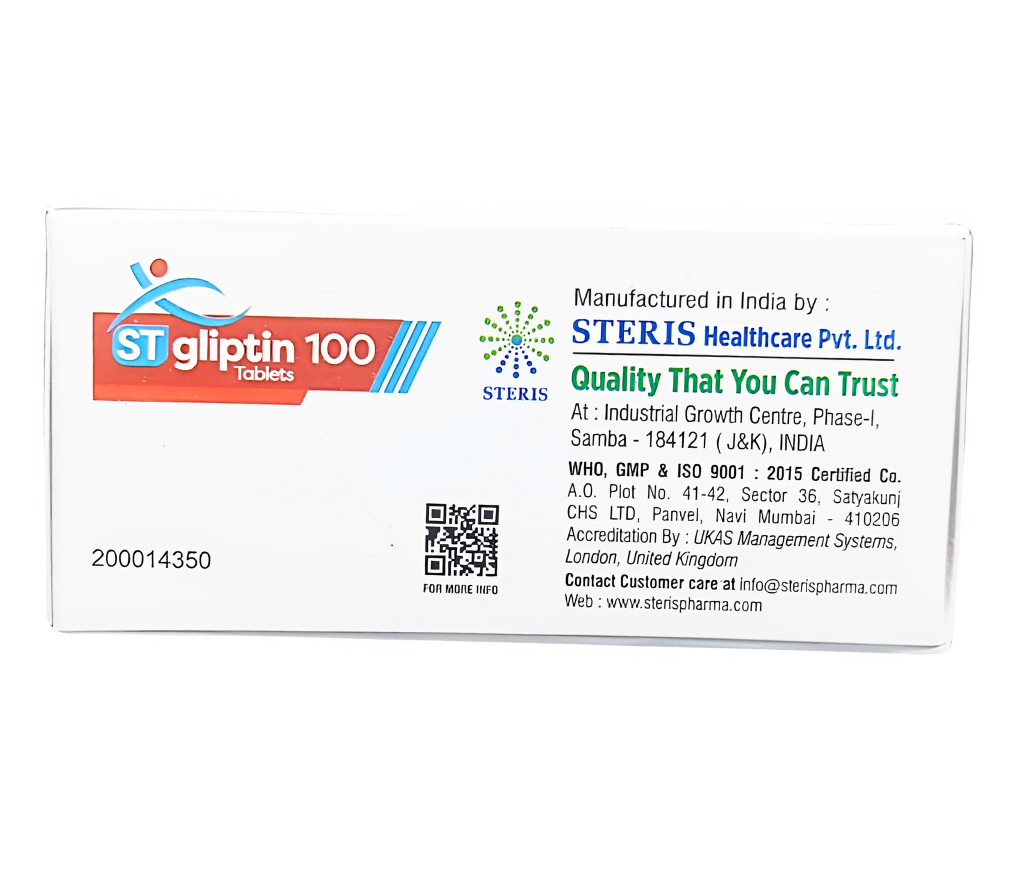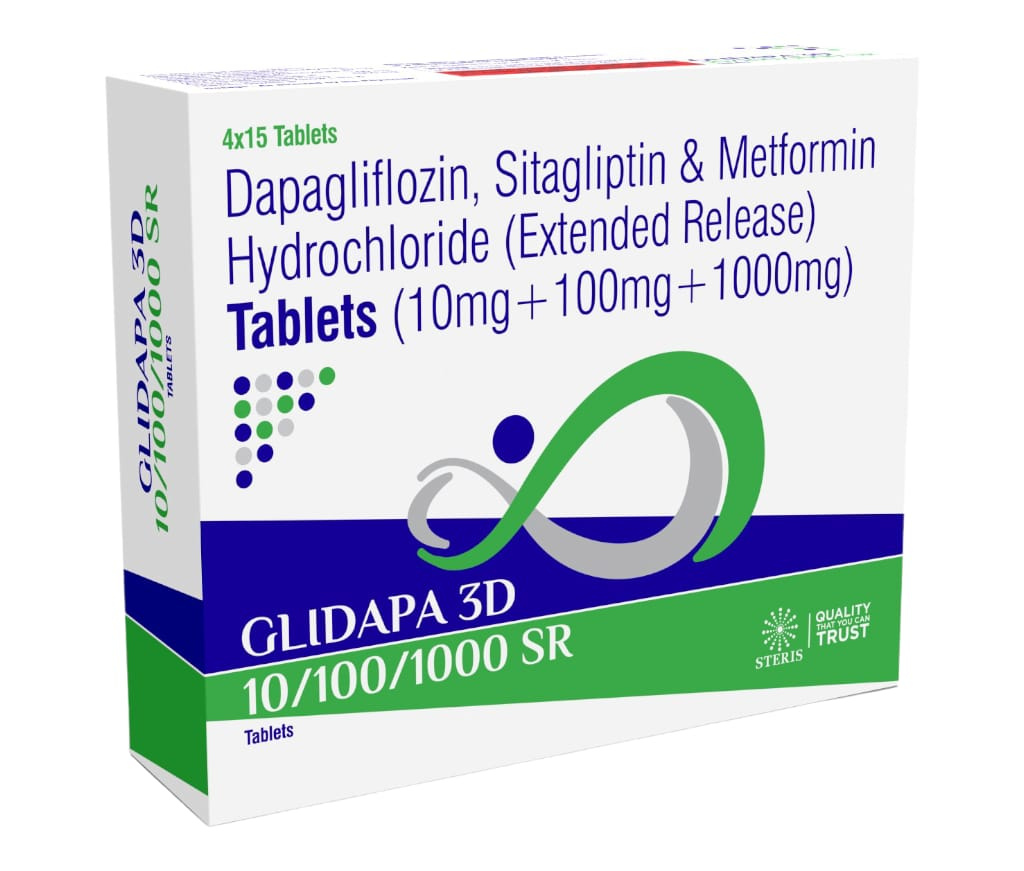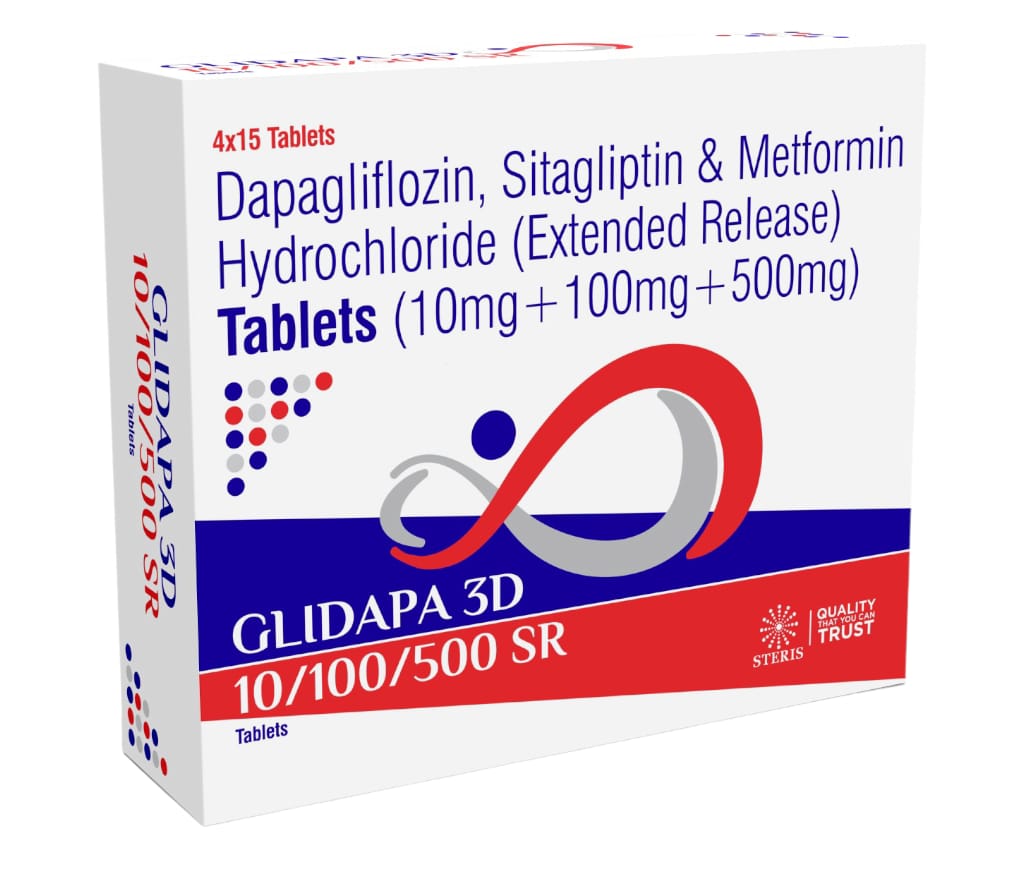ST-GLIPTIN 100
Item requires a valid prescription
Manufactured By Steris Healthcare Pvt Ltd
Composition Sitagliptin 100 mg
Rs 295.32
MRP Rs 421.88
(30% OFF)
Includes all taxes
Package SIZE
( For 15 Tablets )
100% Authentic
Products
Free
Shipping*
Products
Return Policy
Description:
Sitagliptin 100 mg Tablet used to treat type 2 diabetes mellitus and used together with a healthy diet and regular exercise to control blood sugar levels. Sitagliptin 100 mg helping to prevent serious conditions of diabetes like kidney damage and blindness. Sitagliptin 100 mg Tablet is normally prescribed when diet and exercise alone or other medicines do not prove sufficient to control your blood sugar level. One drug used to treat diabetes is sitagliptin. It functions by reducing the hormones that elevate blood sugar levels and enhancing the pancreatic production of insulin. As a result, postmeal and fasting sugar levels are lowered.
Uses of Sitagliptin 100 mg: ST GLIPTIN:
-
Managing Type 2 Diabetes: Used as an adjunct to diet and exercise.
-
Combination Therapy: Can be combined with other diabetes medications for better glycemic control.
-
Monotherapy: Effective on its own for patients who cannot tolerate other treatments.
How Sitagliptin 100 mg works:
Sitagliptin 100 mg Tablet works by increasing the amount of insulin that your body makes. The hormone that regulates blood sugar levels is called insulin. Sitagliptin 100 mg may only be purchased with a prescription. Sitagliptin 100 mg (ST-GLIPTIN) is a selective inhibitor of the enzyme dipeptidyl peptidase-4 (DPP-4), which plays a key role in the metabolism of incretin hormones. Incretins, primarily glucagon-like peptide-1 (GLP-1) and glucose-dependent insulinotropic polypeptide (GIP), are hormones released by the gut in response to food intake. These hormones enhance insulin secretion from the pancreatic beta cells in a glucose-dependent manner and suppress glucagon release from alpha cells, helping regulate blood sugar levels.
Under normal physiological conditions, the enzyme DPP-4 rapidly degrades GLP-1 and GIP, reducing their effectiveness. Sitagliptin inhibits the DPP-4 enzyme, thereby preventing the breakdown of these incretin hormones. This leads to prolonged activity and increased plasma concentrations of active GLP-1 and GIP, which, in turn, enhances insulin secretion and reduces glucagon levels when blood glucose levels are elevated.
Safety and Advice: Sitagliptin 100 mg
Sitagliptin works by inhibiting the DPP-4 enzyme, which degrades incretin hormones. These hormones are responsible for increasing insulin release and decreasing glucagon levels in the bloodstream. By prolonging the action of incretin hormones, Sitagliptin helps lower blood sugar levels, particularly after meals. One typical prescription drug used to treat type 2 diabetes mellitus is sitagliptin 100 mg. It is a member of the class of medications called DPP-4 inhibitors (dipeptidyl peptidase-4 inhibitors), which aid in controlling blood sugar levels, especially after meals. Sitagliptin is usually well tolerated, but in order to guarantee its safe and efficient administration, it's crucial to be aware of specific safety precautions and warnings.
1. Use Under Medical Guidance
Only use sitagliptin as prescribed by a medical practitioner. It should not be used to treat type 1 diabetes or diabetic ketoacidosis (DKA), nor is it a replacement for insulin.
2. Monitoring of Kidney Function
The kidneys are the main organ via which sitagliptin is eliminated. Dosage adjustments are necessary for patients with moderate to severe renal impairment. Throughout the duration of therapy, routine kidney function tests are recommended.
3. Risk of Hypoglycemia
Sitagliptin often doesn't result in low blood sugar when taken by itself. However, combining it with insulin or sulfonylureas raises the risk of hypoglycemia. Patients should keep an eye out for symptoms including sweating, lightheadedness, or shakiness.
4. Warning of Pancreatitis
Rarely, sitagliptin has been linked to acute pancreatitis. The medication should be stopped and prompt medical assistance should be sought if a patient has significant stomach discomfort that may radiate to the back.
5. Risk of Heart Failure
Patients with a history of congestive heart failure should use sitagliptin with care, particularly if they have renal impairment. It is important to keep an eye out for symptoms like weight gain, edema, or dyspnea.
6. Reactions to Allergies
Serious allergic reactions, such as angioedema or severe skin rashes, are uncommon but can happen. If hypersensitivity symptoms appear, stop taking the medication.
7. Getting pregnant and nursing
The use of sitagliptin during pregnancy or lactation is not well documented. It should only be taken when a doctor has recommended it and it is obviously necessary.
Side Effects of Sitagliptin 100 mg Tablet
-
Headache
-
Upper respiratory infection
- Nasopharyngitis
- Pancreatitis
- Severe joint pain
- Allergic reactions
Safety Information
- Dosage: Follow your doctor's instructions on the dosage.
- Monitoring: Regular blood sugar monitoring is essential.
- Pregnancy: Consult your doctor if you are pregnant or planning to conceive.
- Kidney Function: Dose adjustment may be required for patients with kidney issues.
If You Need More Information About ST-GLIPTIN 100 Click here

